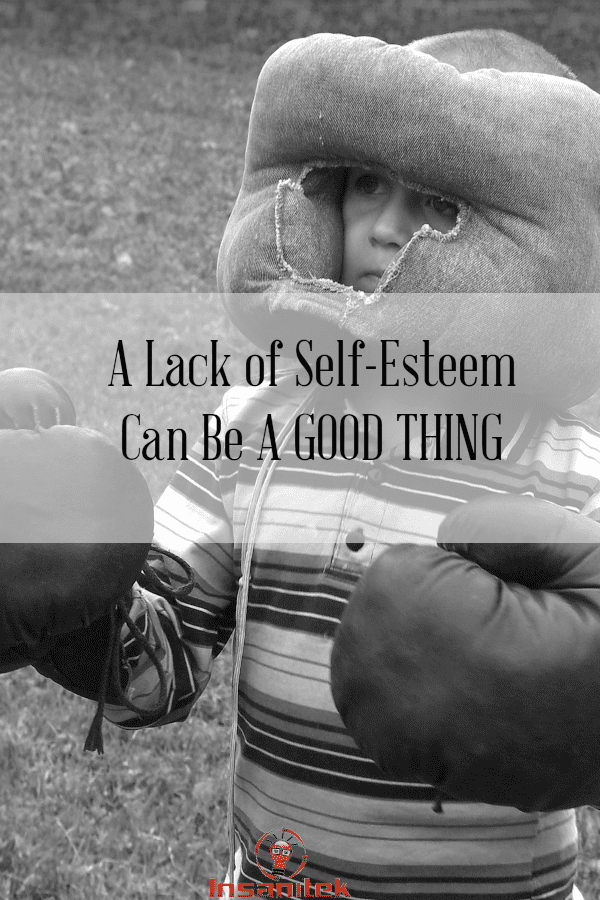Self-esteem can take a massive hit when there is a setback in business. If there’s one question we get from our clients all the time at Insanitek, it’s “What am I doing wrong?!” This comes after a minor failure such as a machine failing to a massive set back like not growing at the pace they set for themselves.
Frankly, it’s not easy when things go awry. The key is to be resilient in all ways, but the secret is to realise that a lack of self-esteem is a good thing.
Why is a lack of self-esteem a good thing?
Because it keeps you honest and humble, which also keeps you hungry.
Let’s unpack that. If you doubt yourself, you have an opportunity to analyse the situation, then get better at something.
Fail an experiment? Good. Do it again and pay attention to why it failed.
Potential client said no? Good. Analyse the discussion and see if you can smooth out your pitch.
Completely lost on what do to next? Good. LEARN more.
It’s way easier to become a true super-human with amazing capabilities if you are humble enough to get past your ego. No one is perfect, and you don’t need to be. You need to be honest and open, which will make you truly great because you are being real.
When you’re real and you want something, you’ll find a way to make it happen. Not fake it, but make it actually happen. And this reality keeps you hungry to keep going forward in your own life.
10,000 hours?
 So, we’ve all heard the adage of needing to do something for 10,000 hours before you master it thanks to Malcolm Gladwell’s book Tipping Point. This has turned into a mantra for lifestyle coaches among other cheerleaders. What they don’t say is that this takes a lot of time. That’s about 417 days. Over a year. You have to have a lot of passion for a topic to spend that much time on it.
So, we’ve all heard the adage of needing to do something for 10,000 hours before you master it thanks to Malcolm Gladwell’s book Tipping Point. This has turned into a mantra for lifestyle coaches among other cheerleaders. What they don’t say is that this takes a lot of time. That’s about 417 days. Over a year. You have to have a lot of passion for a topic to spend that much time on it.
Besides passion, though, you also have to have focused. You can’t put an audiobook of physics on in the background, then go about working and expect to actually absorb the info. It’s 10,000 hours of focused effort learning the thing you try to master. Take those two facts of life together, and you’ve got plenty of room for failure. Get used to that idea and come up with a plan to embrace the beauty of being human.
Course, what they don’t tell you is that this 10,000 hour rule is wrong (Ericsson, KA. 2012, Hambrick et al., 2014, Macnamara, Hambrick, & Oswald, 2014). Grossly wrong – even according to Ericsson, whose research it was that Gladwell wrote the entire premise of his book on. Turns out that it takes more than concentration during practise, but also a high level of metacognition, innate ability, innate intelligence, and a bit of being at the right place at the right time.
This means stop taking a hit to your self-esteem when things go wrong.
There are certain measures you can do to get better, like developing your metacognition skills and increasing your luck by taking opportunities. Any time you find yourself wondering what went wrong, realise it’s an opportunity to learn. (And yes, I just miiiight be reminding myself of this, too.) Then, actively work on bettering yourself through developing skills and changing the way you look at the scenarios.
What actions can you take?
First, embrace life. All of it. The good. The ugly. The laughable. The amazing.
Second, be open to lessons. You’re in charge of your life, so you can choose how to react to all the hard and soft balls that life throws at you. Your personality will dictate the exact way you approach a problem, but approach you will.
Third, try again. And again. And again. Just because something doesn’t work doesn’t mean you are a failure. Step back, analyse it, tweak it, and try again.
Fourth, tweak the stuff that works as you sell it. After all, it can always be more inventive, creative, efficient, etc.
Fifth, enjoy the process. It’s life, after all, and there is no reason to make life more miserable than it has to be.
References
Hambrick, D. Z., Altmann, E. M., Oswald, F. L., Meinz, E. J., Gobet, F., & Campitelli, G. (2014). Accounting for expert performance: The devil is in the details. Intelligence, 45, 112–114. https://doi.org/10.1016/j.intell.2014.01.007
Macnamara, B. N., Hambrick, D. Z., & Oswald, F. L. (2014). Deliberate Practice and Performance in Music, Games, Sports, Education, and Professions: A Meta-Analysis. Psychological Science, 25(8), 1608–1618. https://doi.org/10.1177/0956797614535810

